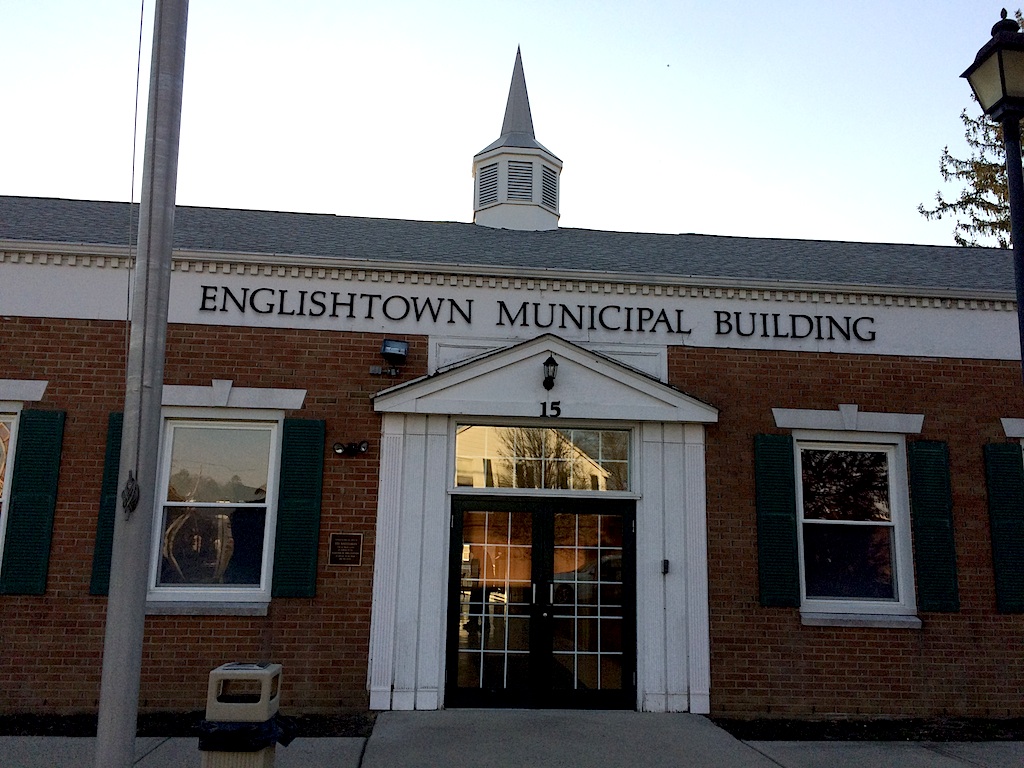ENGLISHTOWN – The Borough Council has adopted an ordinance that establishes a cost of about $268 for Englishtown property owners who receive solid waste collection services in 2022 through the municipality’s new solid waste utility.
The ordinance was adopted by the governing body on March 23. Council President Greg Wojyn and council members Eric Mann, Dan Marter and Cecilia Robilotti voted “yes” on a motion to amend the borough’s solid waste utility ordinance. Councilmen Daniel Francisco and William Lewis voted “no” on the motion. The 4-2 vote carried the motion.
No members of the public spoke on the ordinance before it was adopted by the governing body.
Two weeks earlier, on March 9, council members awarded a contract to Suburban Disposal to provide garbage collection and disposal services in 2022. The projected $268 cost to a user derived from the contract with Suburban Disposal.
Wojyn, Mann, Marter and Robilotti voted “yes” to award the contract to the company. Francisco voted “no” and Lewis abstained on that item.
Under the terms of the contract, Suburban Disposal will continue to collect and dispose of garbage two days a week. Borough officials will have the option to extend the contract with the company to four years.
Officials have said Englishtown’s new solid waste utility is separate from the municipal government and will allow the borough to pay for garbage collection and disposal with revenue that is raised outside of the municipal budget (i.e., not from property taxes). The bill for the solid waste utility will be due on Oct. 15.
The issue of solid waste disposal was initially raised by Mayor Thomas Reynolds in December when he said the municipal budget would not be able to fund the borough’s contract with Suburban Disposal in 2022 due to cost increases.
The previous contract with the company was for five years and was set to expire at the end of 2021, according to borough officials. That contract allowed for solid waste to be collected and disposed of twice a week. That contract was subsequently extended until April 1.
On Feb. 23, Englishtown’s solid waste utility ordinance was adopted. Wojyn, Mann and Robilotti voted “yes” and Francisco, Lewis and Marter voted “no.” Reynolds, who can only vote to break a tie, cast the deciding vote to establish the solid waste utility.
On March 9, the night the updated ordinance was introduced, information regarding the potential cost of the solid waste utility was provided to residents.
According to borough officials, the contract proposed by Suburban Disposal would cost $268 if collection was provided twice a week; $238 if collection was provided twice a week during the summer and once a week during the winter; and $201 if collection was provided once a week all year. Collection is currently provided twice a week.
Subscription contracts were also proposed by Solterra Recycling Solutions ($310 for two collections and $234 for one collection); Sakoutis Brothers Disposal ($270 for two collections); and Republic Services ($252 for two collections).
Reynolds said none of the other contractors would provide bulk pickup, which Suburban Disposal will provide once a week. He also said because these contracts were subscriptions, the contractors could change their rates at any time.
Francisco, who supported the idea of allowing residents to hire their own contractor for garbage collection and disposal, said a private contract would offer more flexibility and control for residents.
Reynolds said allowing residents to contract for solid waste collection service individually would increase truck traffic in Englishtown and create more strain on the borough’s roads.
Some residents who spoke at the meeting agreed with the mayor that individual contracts would not be viable because of the potential impact of additional trucks.
Municipal officials also discussed whether Suburban Disposal should provide solid waste services twice a week; twice a week in the summer and once a week in the winter; or once a week all year.
Reynolds said one collection per week was not a viable option.
Wojyn, Mann and Marter said they would choose having two collections per week and one collection per week based on the time of year; Lewis and Robilotti said they would choose to continue two collections per week all year; and Francisco declined to comment.
Residents who were present indicated they supported having two collections per week all year.
Reynolds also supported having two collections per week. He said he did not want to disrupt the way residents are used to receiving service and he said the rates would be lower in 2022 because the borough has already paid for the first three months.
Following public input, the council members opted to keep two collections per week, with service provided by Suburban Disposal.

